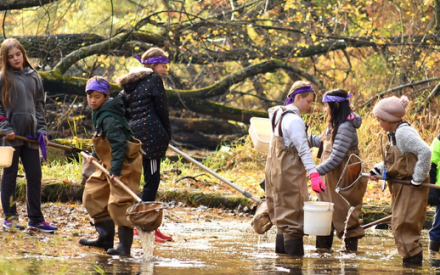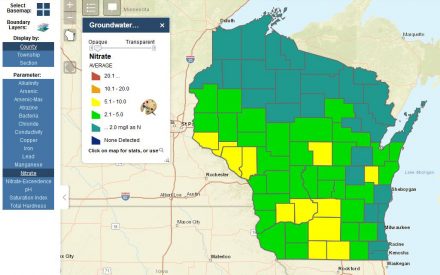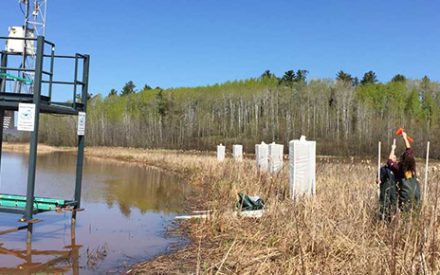The move to virtual programming during the COVID-19 pandemic demonstrated an increased need for enriching online educational engagement. At the same time, disparities in access to nature were exacerbated; individuals in cities who were subject to socio-spatial inequalities often lost access to green spaces. This reduction in access to nature, as well as other stressors from the pandemic, resulted in a rise in several serious mental health issues such as anxiety and depression. There were also growing gaps in academic achievement. Reestablishing connections to nature through high-quality experiential environmental education can help individuals develop resilience and increase academic achievement.
In response, Extension’s Upham Woods Outdoor Learning Center developed and implemented an online-based environmental education program: Research Accelerators. The program brought experiential science learning to students who would otherwise not be able to access field-based environmental education. Technology was used to support youth-led exploration of the scientific process, using the environment as the context through which to study science.
Educators delivered engaging and enriching environmental programming that promoted science communication skills and data literacy, while elevating youth voice during science investigations. One example included virtual visits with animals of Upham Woods including raptors and reptiles, spurring discussions about the species. Research Accelerator programming was held virtually at the Upham Woods facility and at greenspaces near participating schools. Other virtual facilitations included Upham Woods staff conducting an experiment that students would lead, participate in, and collect data for.
Through activities like this, the Research Accelerators program achieved three key goals:
- Encouraging observation and documentation of the natural world around participants;
- Connecting people to Upham Woods and to the lessons from the land; and
- Supporting data literacy and writing skills through scientific storytelling and sharing.
Extension educators who arranged sessions for participants reported that all sessions achieved the first goal of inspiring interest in natural resources (80% reported goals 2 and 3 were met).
Extension helps youth develop socioemotional and science skills that lead to enhanced confidence, connection, commitment to school, and increased science literacy.
Upham Woods is part of Extension’s Positive Youth Development Institute. Learn more by visiting fyi.extension.wisc.edu/uphamwoods.
Download Article

 Environmental Science Storytelling
Environmental Science Storytelling Ensuring Safe Drinking Water for Rural Wisconsin
Ensuring Safe Drinking Water for Rural Wisconsin Coordinating Wetland Restoration & Supporting Community Identity
Coordinating Wetland Restoration & Supporting Community Identity An Improved Geologic Map of Wisconsin
An Improved Geologic Map of Wisconsin


